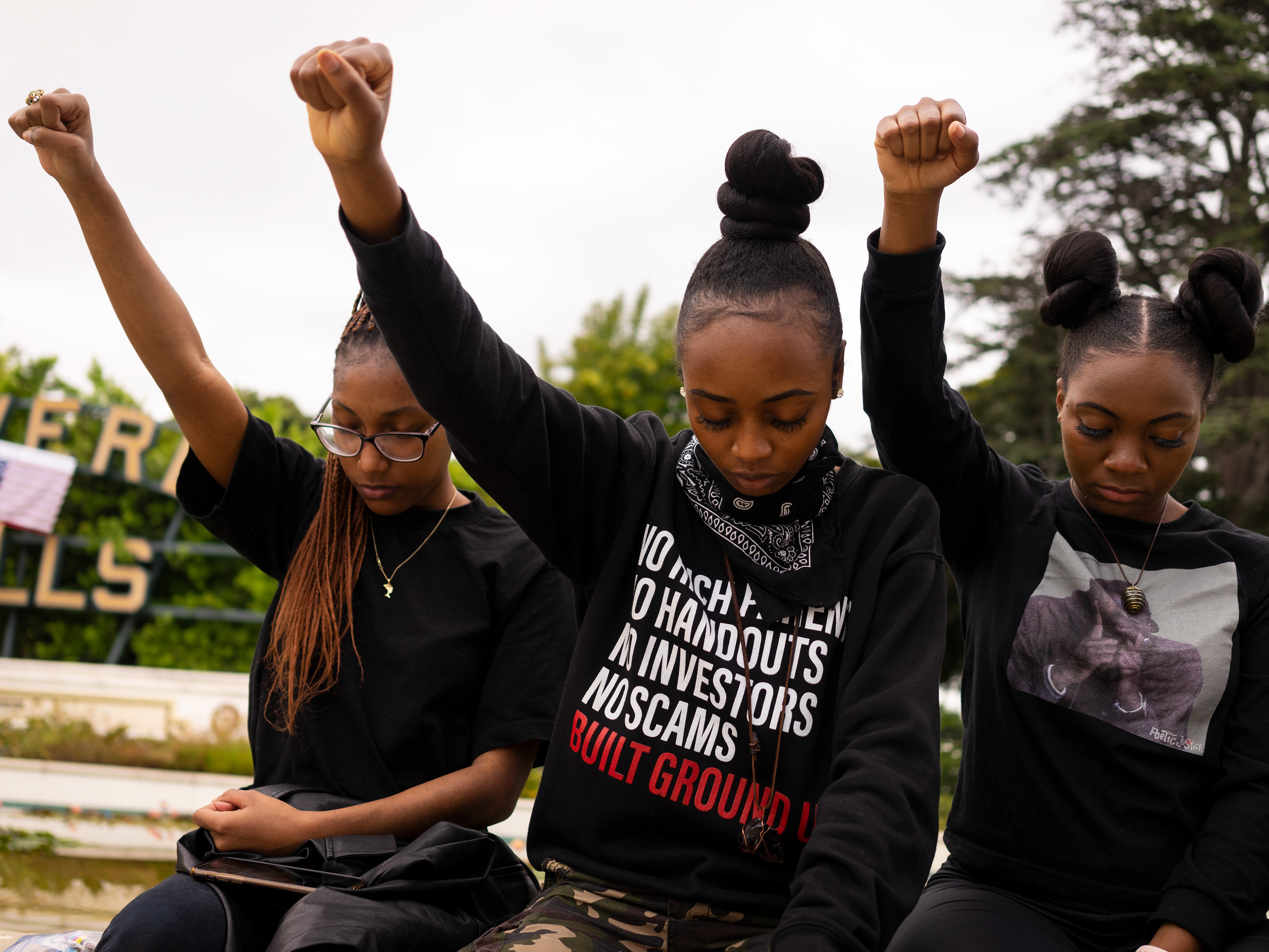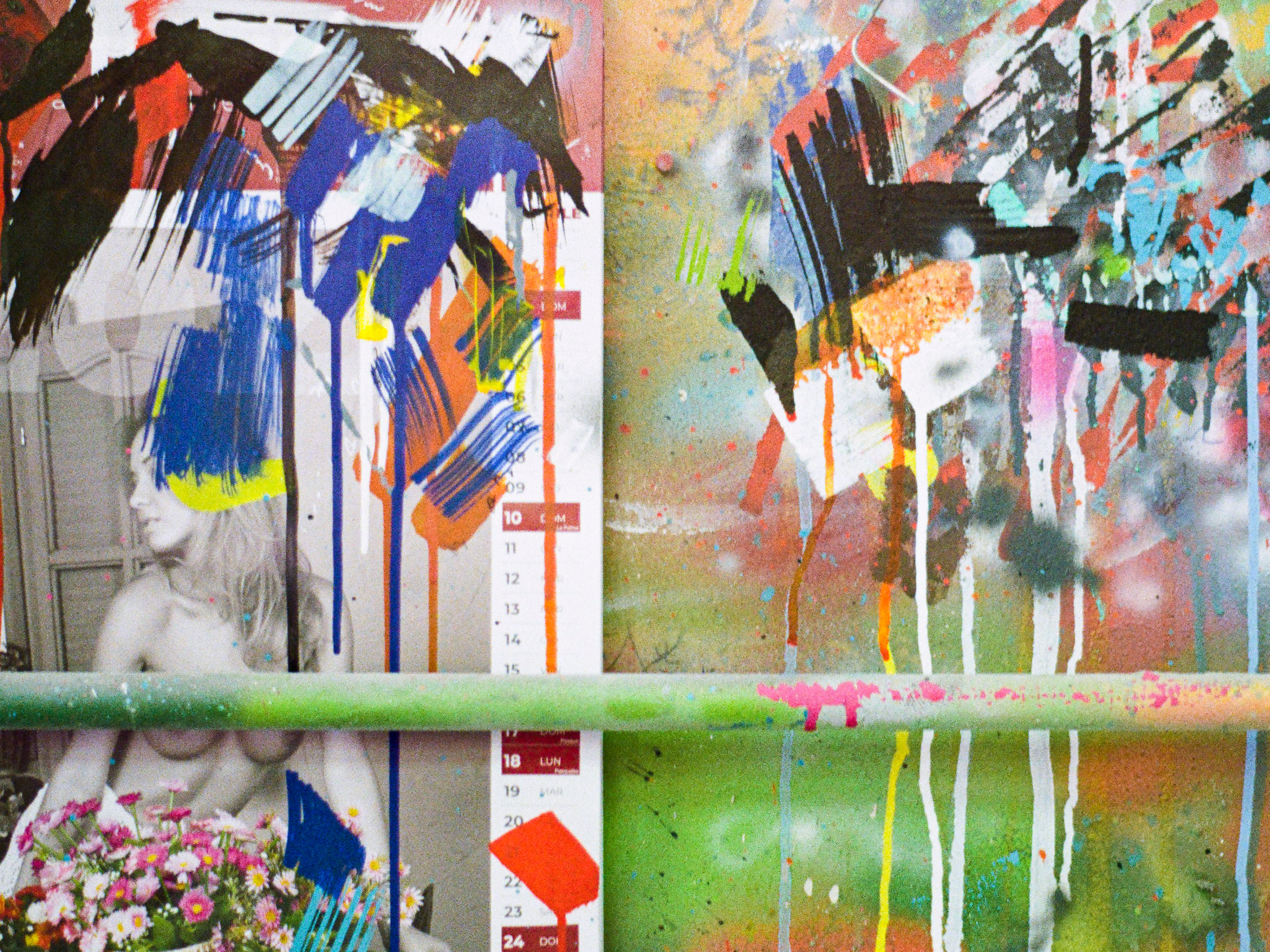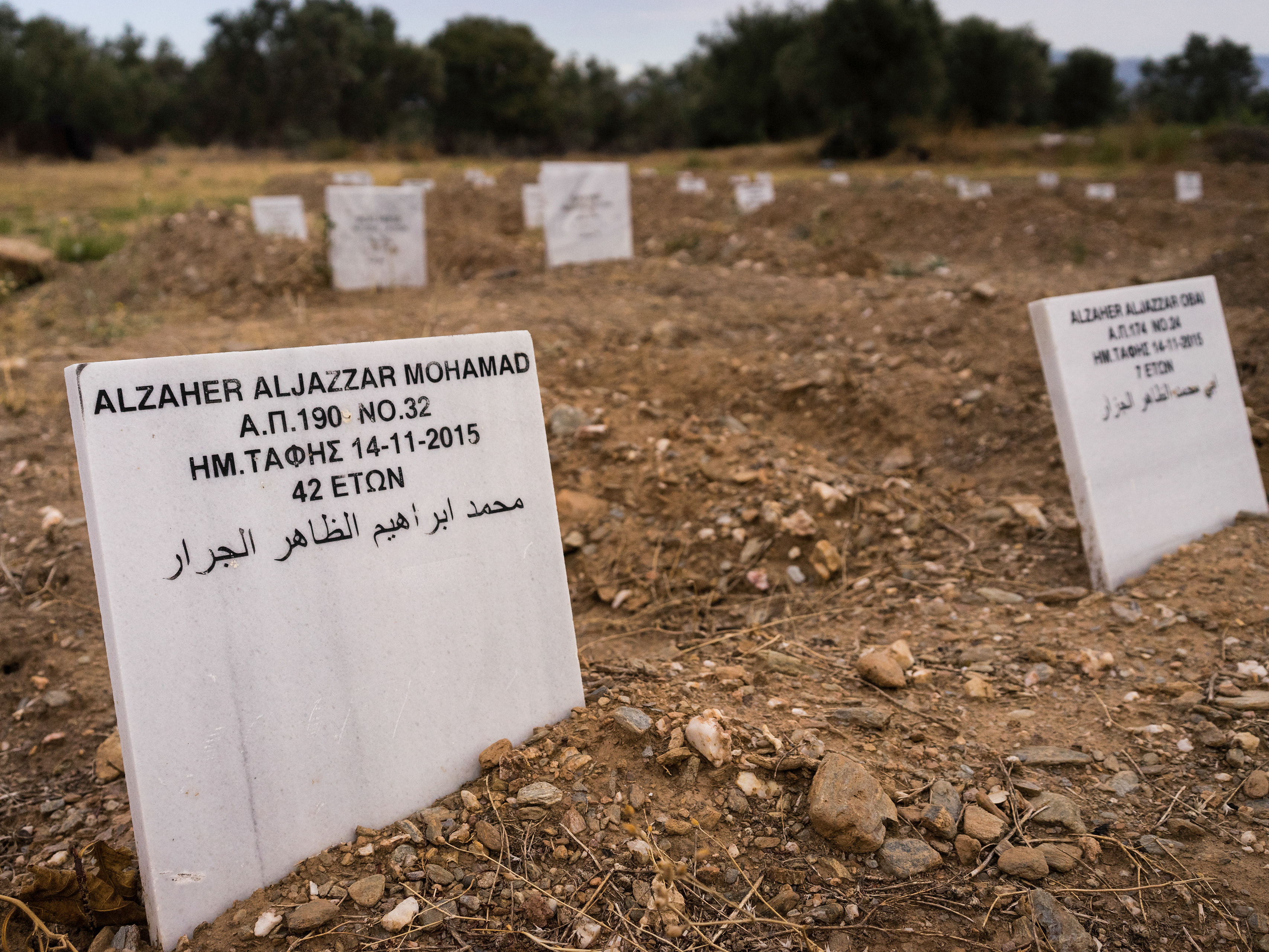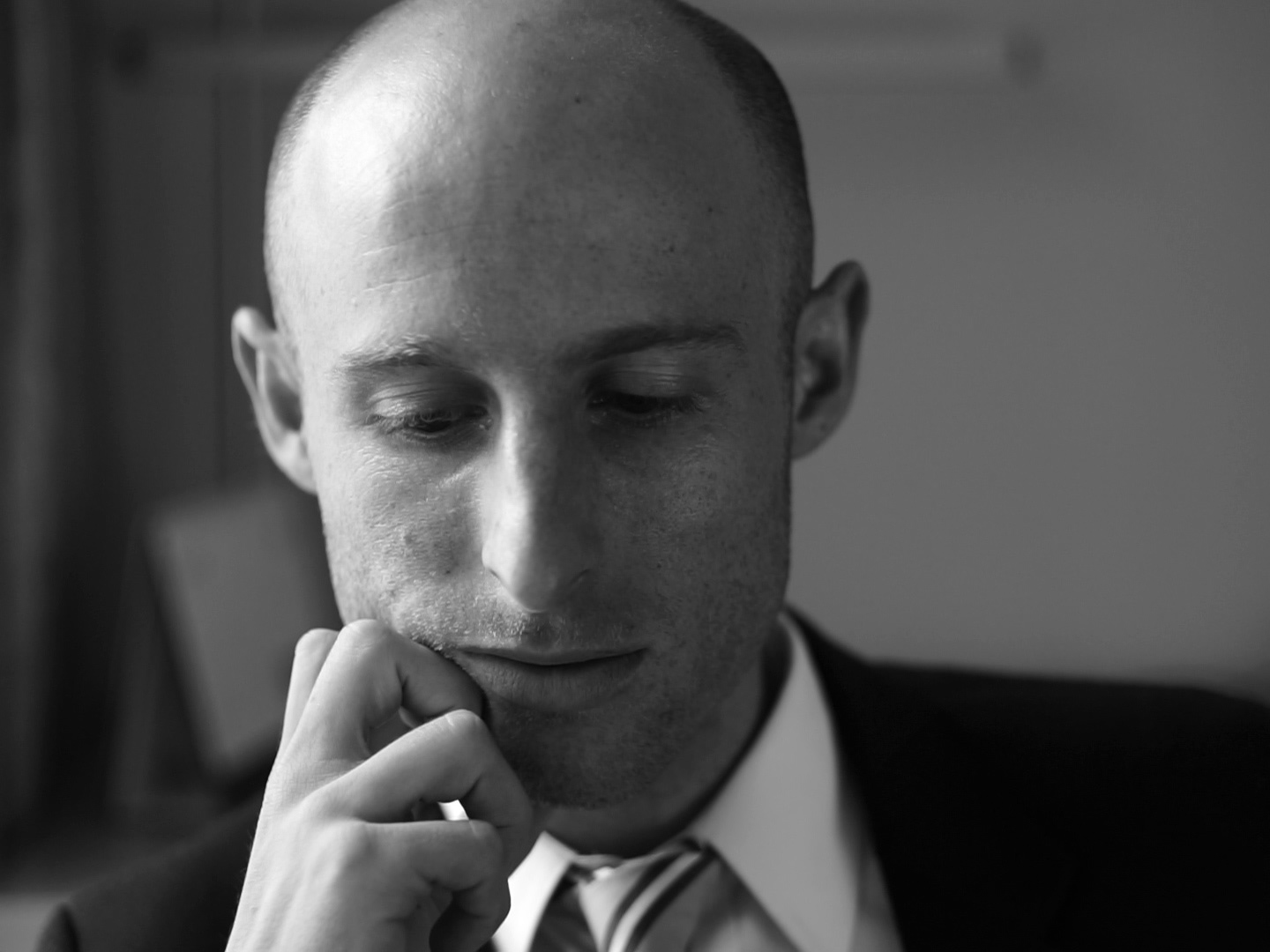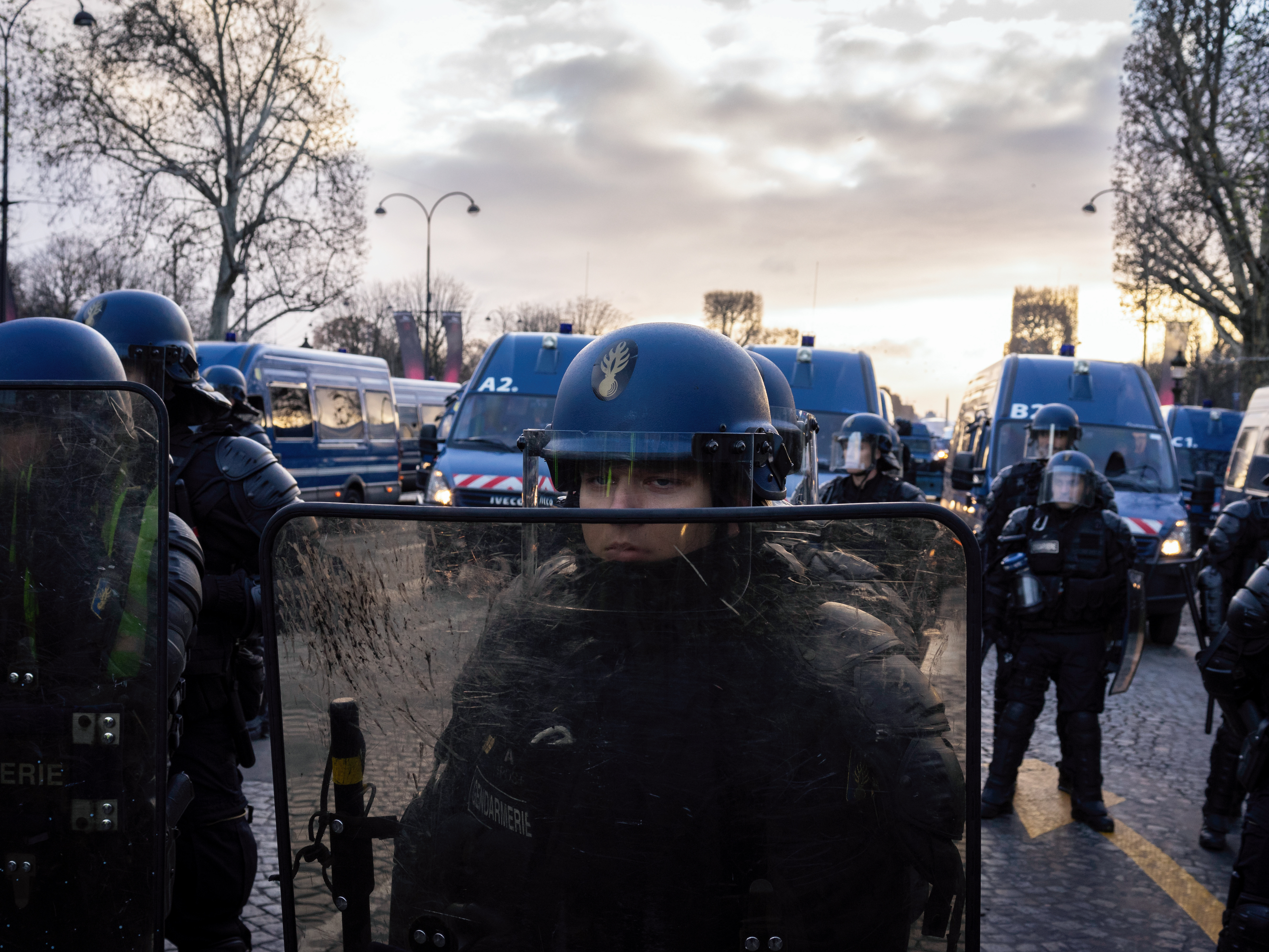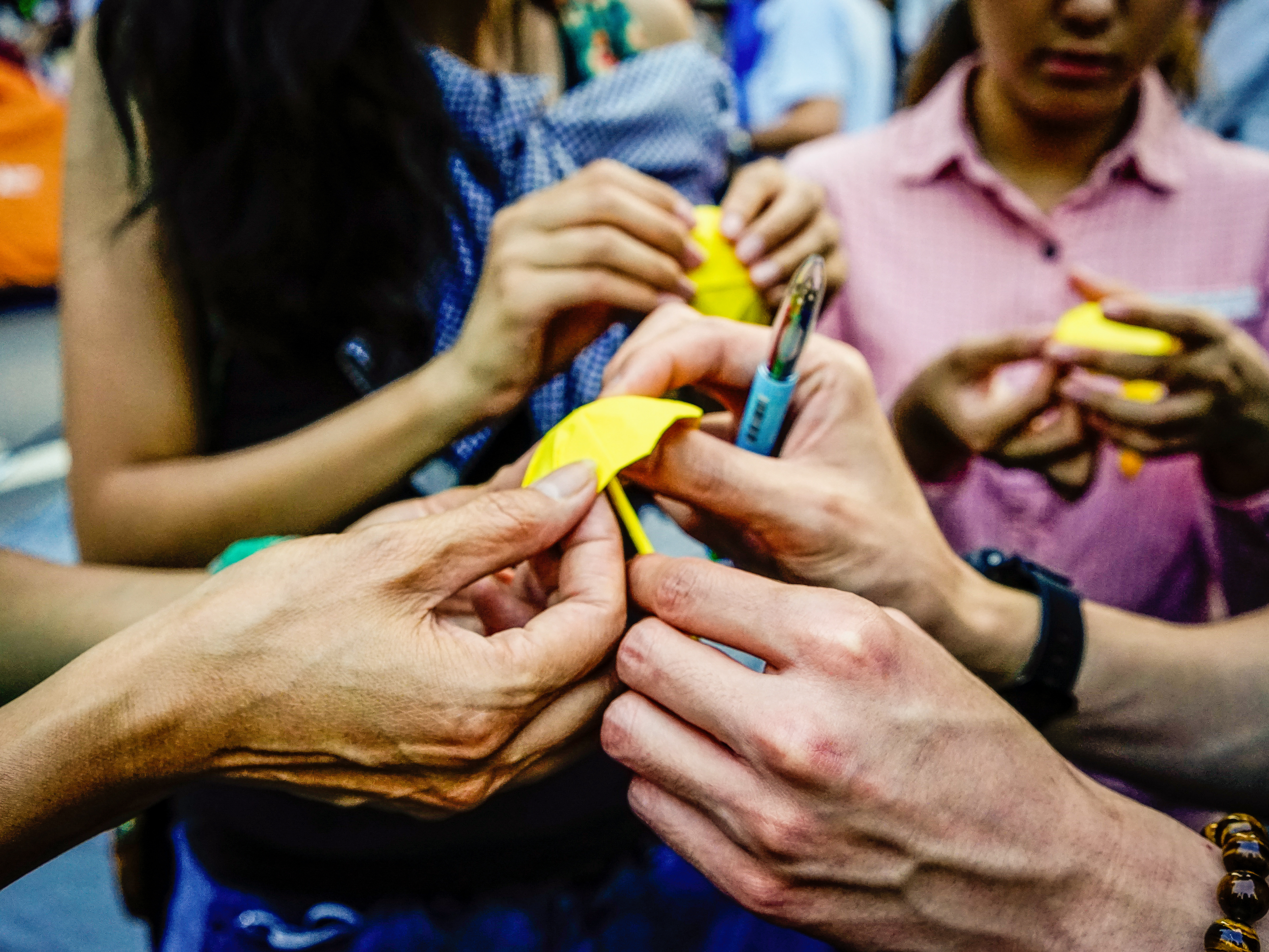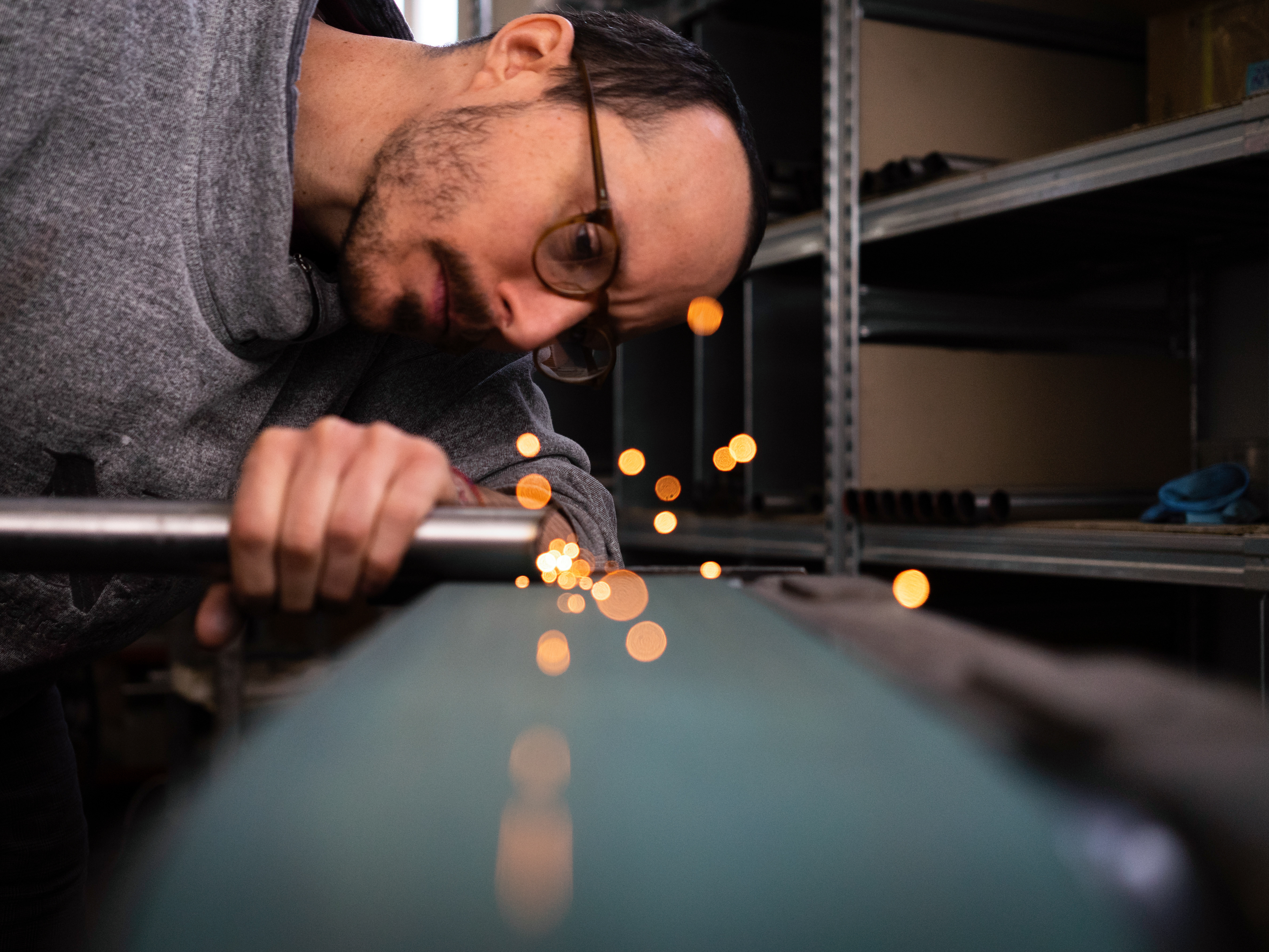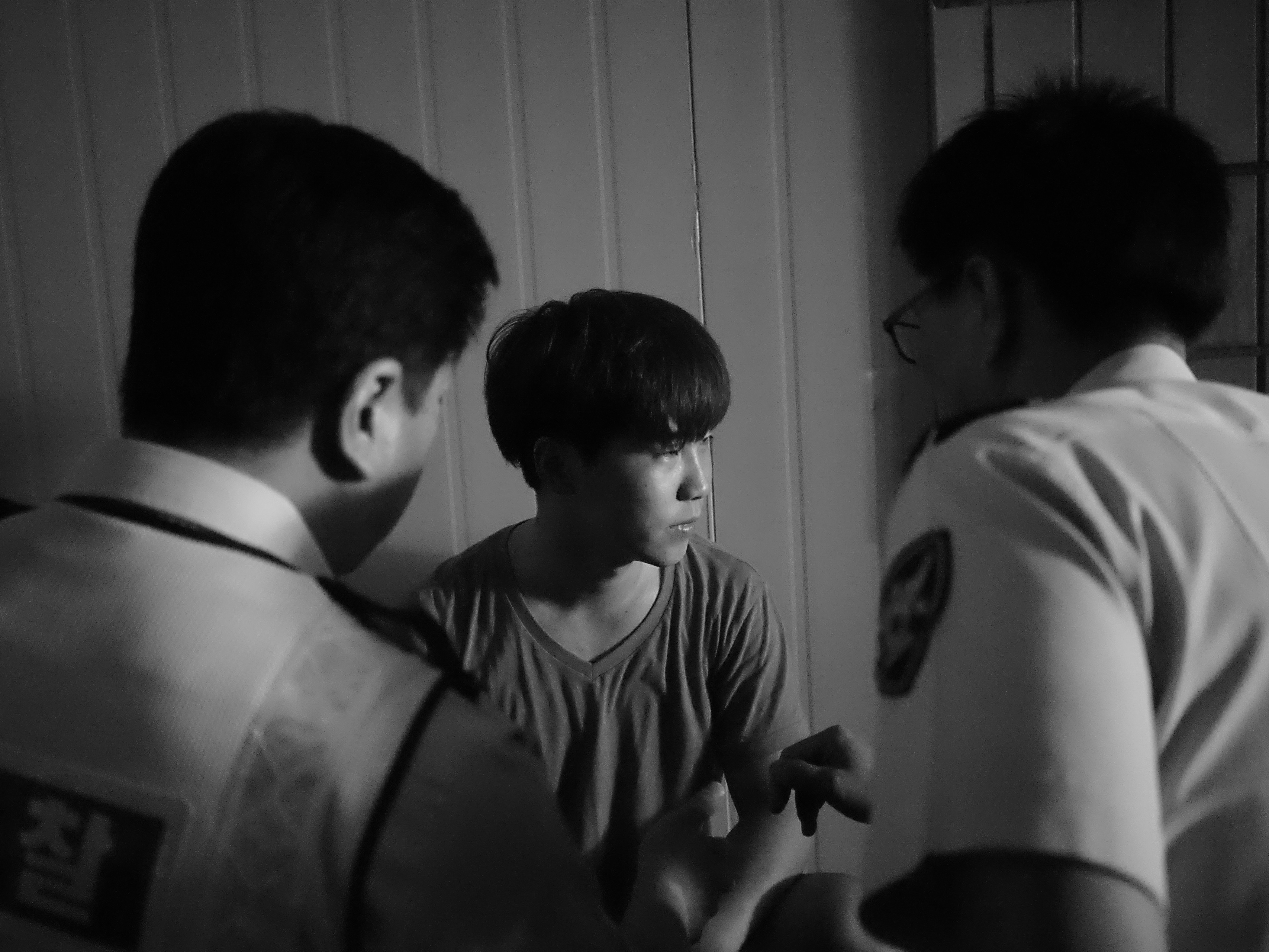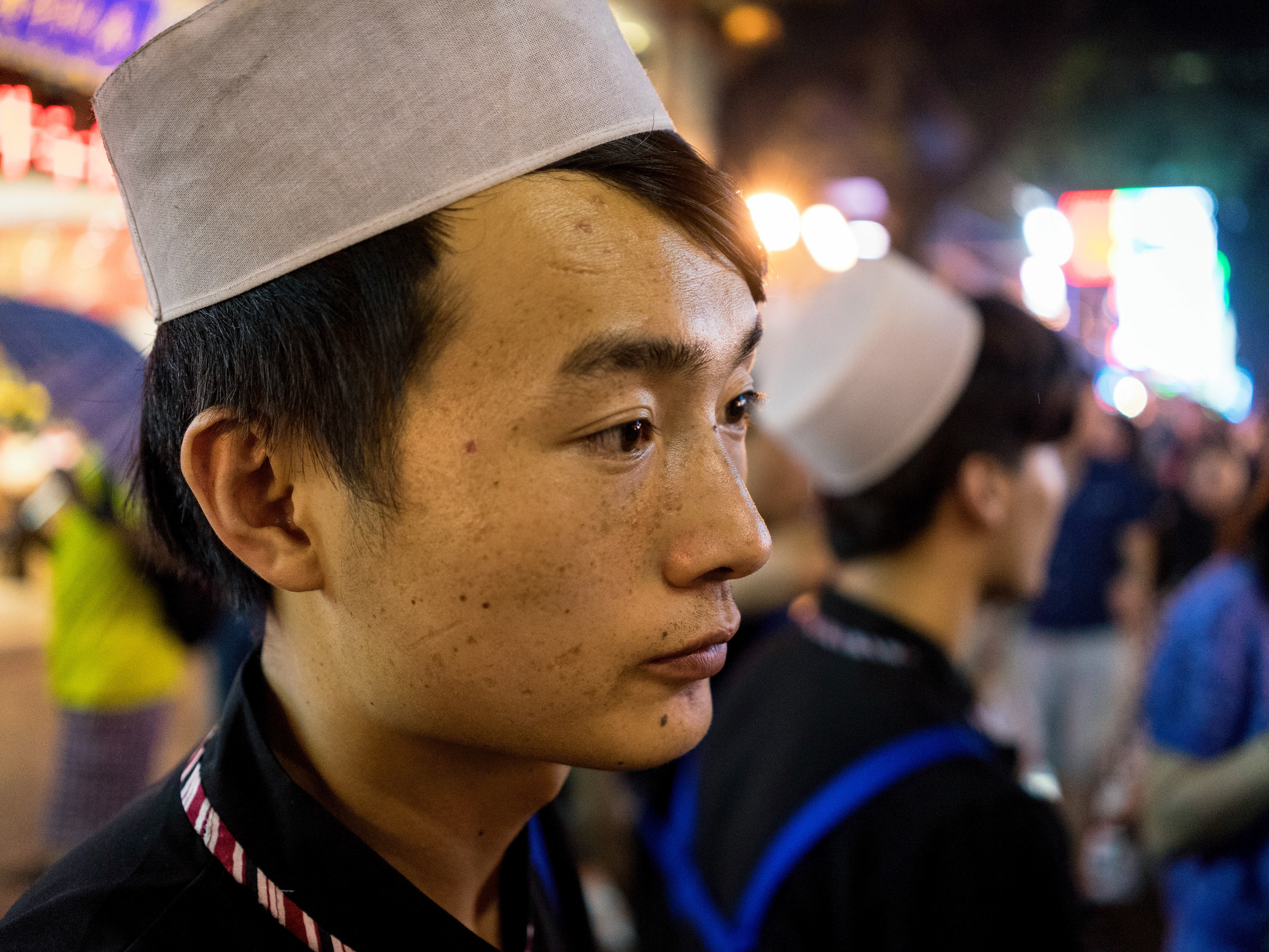The Greek island of Lesbos is a prison. It didn’t mean to be. It wanted to be a vacation destination, and for many years it was just that. Then in late 2015 the refugee crisis happened and Lesbos became a way point for refugees from the Middle East and North Africa making their way towards Western Europe and away from war and famine…and then the borders closed. There was no going back, and now there was now no way forward. Moria, the largest camp on the island became an indefinite home to refugees, NGO’s and bureaucrats, the latter of whom began filing paperwork into a European legal black hole.
The Beach: A large fence separates the port of Mytilini from a small stone swimming area. A fellow photographer and began calling it "the beach" almost immediately.
There are several places on the island where those who are marooned here gather to talk, smoke, charge their phones, and find their joys where they can. I found myself drawn to the beach. At the port of Mytilini, on the Southeast coast of Lesbos, a large fence separates the port from a small stone swimming area which a fellow Photographer and I began immediately calling “The Beach.” There are two faded blue ladders dipping into the ocean, a faded blue multi-headed shower, and two faded blue changing rooms. The beach has a number of regulars, mostly Greeks who came to swim every single day, and now since there is nothing else to do, and the beach has a shower in which you can wash clothes and bathe yourself regularly, as well as swim and fish it has become a home to an amorphous group of mostly single young men with little else to do but pass the time, smoke, and weigh the risks and possibilities of getting to Athens by stowing away on the ferries that run every day between Lesbos and Athens and Turkey. Refugees came to the beach and they have stayed.

he Boys: Karam Fadoos (far right), 16, comes to swim with his friends almost daily. Karam is from Syria and has been on Lesvos for 6 months. He and his friends dream of reaching Germany. Karam told me how he had only just learned to swim three months ago. He and his friends have been having a lot of fun ever since.
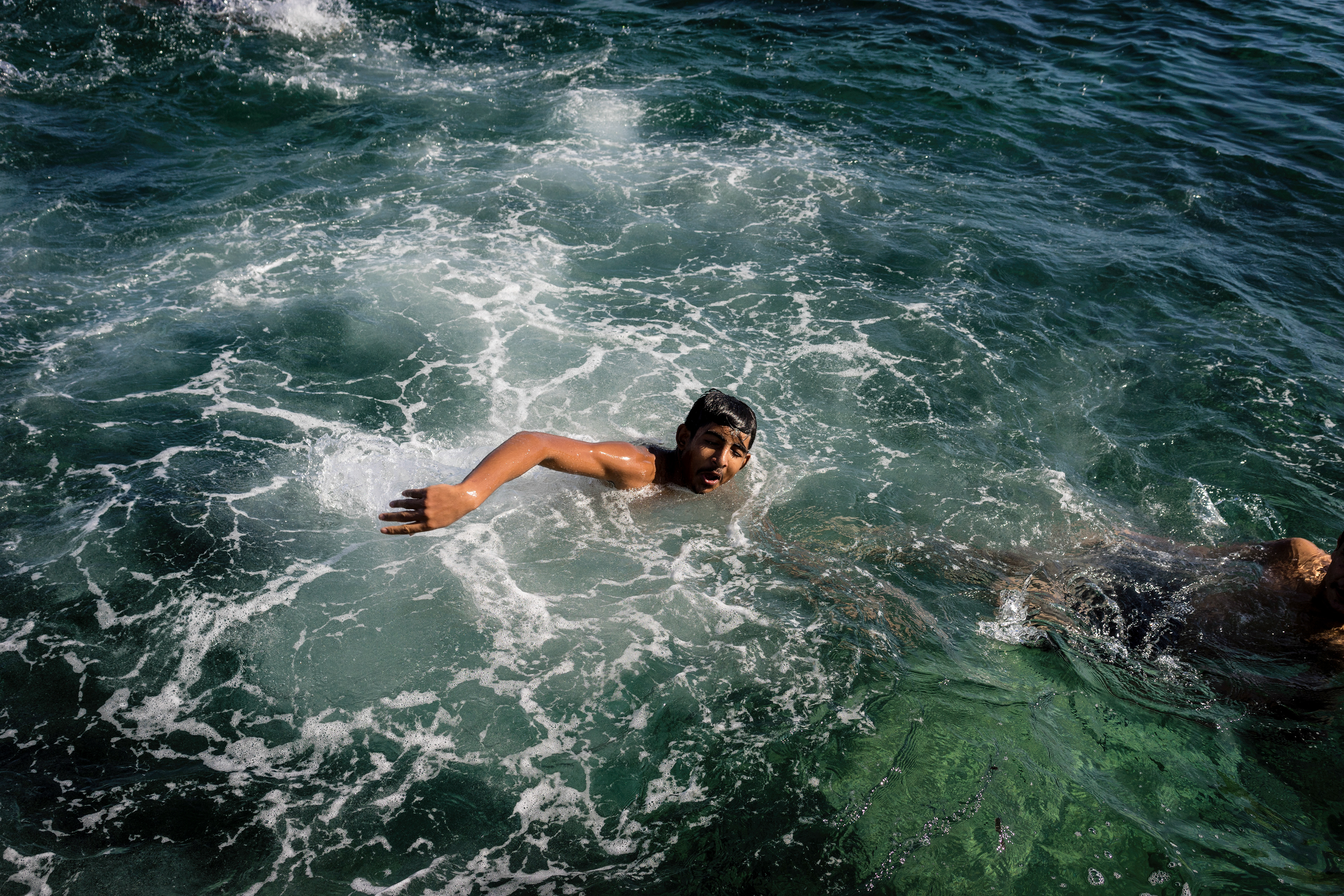
Just Learned to Swim: Karam demonstrates his new abilities.
The Boys: Karam Fadoos (far right), 16, comes to swim with his friends almost daily. Just Learned to Swim: Karam demonstrates his new abilities.
Karam is from Syria and has been on Lesvos for 6 months.
He and his friends dream of reaching Germany.
Karam told me how he had only just learned to swim three months ago.
He and his friends have been having a lot of fun ever since.
Wahel: Wahel Muhammad, 22 from Aleppo, Syria. Wahel has been on Lesbos for 2 months. He wants to get back to Aleppo since he has seen the conditions in Moria, the danger, and the purgatory everyone here in Greece is stuck in.
Wahel Smoking: Rolling your own cigarettes and smoking is a way of life here on Lesbos, and the refugee community is no exception. Here Wahel has a smoke as he dries after his daily swim.
The men and boys who come here are a diverse group. From listening to any news outlet in the West, one would think that Syrians were the only people on the run. I met refugees from Afghanistan, Iraq, Tunisia, Algeria, Morocco, Cote d’Ivoire, Senegal, Gambia, and the Dominican Republic among countless other places. Perhaps the most important and striking thing I learned about these people was this: They are us. Some are fleeing war, some famine. Some are fleeing poverty, some belong to a political group that has fallen out of favor and into danger…some flee torture. However, to define them simply by their pain and their trauma misses the point entirely. Are they refugees? Yes. Have they seen and been subjected to unspeakable emotional and/or physical brutality and deprivation? Yes. But they, for the most part, were middle and upper middle class people. Nearly all of the younger men were college students. Studying Biology, Linguistics, Literature, Architecture, etc. All of the older men were working professionals. Teachers, Soldiers, Police, Lawyers, Janitors, Small Business Owners…they are us.
The Approach: It looks like fun, but about three four feet in extending to the water, the beach is covered in moss and slime. I slipped a few times standing on it in boots. I'm not sure how these guys were running through it at full speed.
Enjoying the Show II: A young Syrian teenager watches his friends continue to dive, as he dries in the sun. Turkey can be seen in the distance.
On a par with swimming, the great preoccupation of the men and boys who frequent the beach is getting to Athens which they see as the next stage of their journey. Every day, around dusk the Port of Mytilini is quietly over run with groups of young male refugees who have gathered to take a desperate shot at improving their situations and moving on. Moving closer to the mythical West.
The Port: These refugees have come to inspect the available hiding places on the trailers that have begun lining up to board the ferry later in the evening.
Ships: These ferries come and go daily with the sunrise and sunset. While they swim and smoke, many of the boys and men at the beach contemplate the risks of stowing away while they watch others being pulled off by the Greek military, beaten, jailed in Moria for a day or two. Once released, these boys and men return to the port to try again.
The immediate danger of stowing away is getting caught by the small contingent of Greek military soldiers who search cars and trucks every night as they board the ship. I heard the story a number of times, always the same: They are found. The soldiers pull them off the trucks, give them a little beating, arrest them and send them back to Moria where they are held for a day or two. Upon release…they return to the port to try again.
Leap of Faith: Illias (bottom) and his friend, both from Cote d'Ivoire, make one of several attempts to stow away. Ultimately Illias was successful and reached Athens.
The lesser known danger, the one quietly whispered about is that many a refugee has been found dead in the auto holds of the ferries. Asphyxiated from some combination of a sealed hiding spot that was able to make it past the inspection, and the diesel fumes that fill the hold during the ferry’s eleven hour journey across the Adriatic Sea to Athens.
Sisyphus: Hicham Gharbe, 23 from Tunisia sits quietly after a swim. Hicham has been on Lesvos for 2 months and dreams of getting to France to reunite with his brother.
Wahel: Wahel stares back at the port as passengers for Athens drive into the parking lot. Behind him, two men move from the port side of the fence back to the beach side.
Calling Home: One member of a group of young Pakistani men makes a call to family as he and his friends wait for their clothes to dry in the sun. They are perched atop a war memorial overlooking the port of Mytilini
Muhammed Ali: 25 year old Muhammad Ali from Pakistan drys his laundry on the war memorial statue overlooking the port of Mytilini. Muhammad has been on Lesbos for 2 months and dreams that he and his younger brother can get to Germany. I met him shortly after some locals called the police on a Syrian man using the public showers just below the statue. He told me that the police don't bother the Pakistanis, but they harass the Syrians and Afghans every single day.
While contemplating these dangers, and being burned from the inside out by the stress and frustration of their situations; those who gather here mostly do chores and talk. They gossip, they laugh, a few of them watch the sunset every single day.
And every evening, in the harbor amongst the residents, or out at the beach, they fish. They fish for some extra food and for the fun of it. A number of the guys who come to the beach daily, they have friends and tent-mates back at Moria. A few of the older Pakistani men have families. They fish as much as they can and cart stinky plastic bags filled with their catch, and the blood and guts of smaller fish that is their bait, back to Moria by bus every evening. Once there, they cook over open flames and maybe get just one extra meal in their slowly thinning bodies.
Warm Clothes: The Tunisians got some warm clothes on this afternoon. Over the past week the weather has turned distinctly from Summer to Fall. Winds at the port have been intense and the nights have gotten significantly colder. Many of the boys out here own only shorts and t-shirts, perhaps the odd pair of jeans; but not much else.
It is early October now at the beach and the nights have grown much cooler and a violent wind has been battering the island. So violent in fact that in the night, the shower was blown off of its well rusted moorings. This presented a big problem for many of the crowd at the beach. Over the next week I saw fewer and fewer people coming to swim and hang out. Without the shower, the beach had lost some of its appeal; and though the days were still warm, swimming was now the domain of only the most dedicated. Two elderly Greek men, Wahel, and occasionally Karam and his small gang were the only ones consistently braving the rapidly cooling waters of the Adriatic.
After the Storm: After two days of incredible wind and wave battering the beach, we arrived to find that the shower, utilized by nearly every patron of the beach, Greek and refugee alike, was destroyed.
On the opposite side of the beach, around the base of the statue and inside a little cove, a group of Pakistani men found a little hidden shower. Little more than a nozzle protruding from a stone wall. It took them no time at all to claim this turf. They spent entire days here, drinking Ouzo, washing, and talking.
New Digs: On the other side of the statue, in a small cove, another public shower was discovered by a group of the Pakistani regulars at the beach. They spent this afternoon showering, doing laundry, and having a bit of Ouzo.
Easy Day: Arbab Ali (Standing), 16 years old from Pakistan. He has been on Lesvos for 9 months and is the only person I've met who wants to stay in Greece. His parents were killed in a car accident. Arbab is alone and was a victim of torture in Pakistan due to something his Uncle was involved in. Here in Greece he lives in a house, is fed well, and takes Greek and English classes every day. He is bright, optimistic and (like almost all the people I've met here) really funny. His friend Waqas Amjad (sitting), 21, and also from Pakistan, has been on Lesvos for seven months and dreams of reaching England. The boys were taking it easy today. Waqas was drinking Ouzo and Sprite, while Arbab kept his friends company while they did their laundry and showered.
Done for the Day: With the laundry done for the day, the guys head up to see about getting some new shoes from a couple Norwegian volunteers who've parked in the lot on the other side of the statue.
Waiting for Moria: Nabaz, a 27 year old Kurd, rests and delays his inevitable return to Moria. He too comes and dreams of stowing away on the ferries, but he has a wife and two small children.* He cannot risk the passage, nor an arrest. He comes to dream, and smoke and talk until it is time to take the bus back to Moria, back to danger, back to the cold. (Three months after this photo was taken there was another fire in Moria. One of Nabaz's children was killed and the other suffered severe burns.)
Rolling: Nasri Abdenmeti (right) 23 from Tunisia. He has been on Lesvos for 2 months and dreams of getting to Italy, or to France where his brother lives. The sun sets slowly, a ferry crawls out of the harbor, and the Tunisian boys roll some more cigarettes...their never ending days bleed together into one.
Despite some of the fun and the moments of camaraderie amongst them, burning always just beneath the surface is the damning frustration of their plight: how much longer? This question is on the tip of everyone’s tongue, it is glazed in anger and impotence; and it sits atop whatever trauma many of these people still carry with them. I met boys whose entire families had been killed. I had a young man tell me he watched ISIS throw his dad into the back of a pick-up truck and he never saw him again. Many families have been torn apart. A few of the guys I met couldn’t afford another SIM card and were worried that their relatives at home and abroad would be worried about them because the news of that particular day was another fire inside Moria. They cannot go forward and they cannot go back, so they sit at the beach and dream of Athens. Nahro, an 18 year old Kurd, summed up the situation with heartbreaking clarity: “If I get on the ferry, yes maybe I die. But I die once! Here I die every day.”
